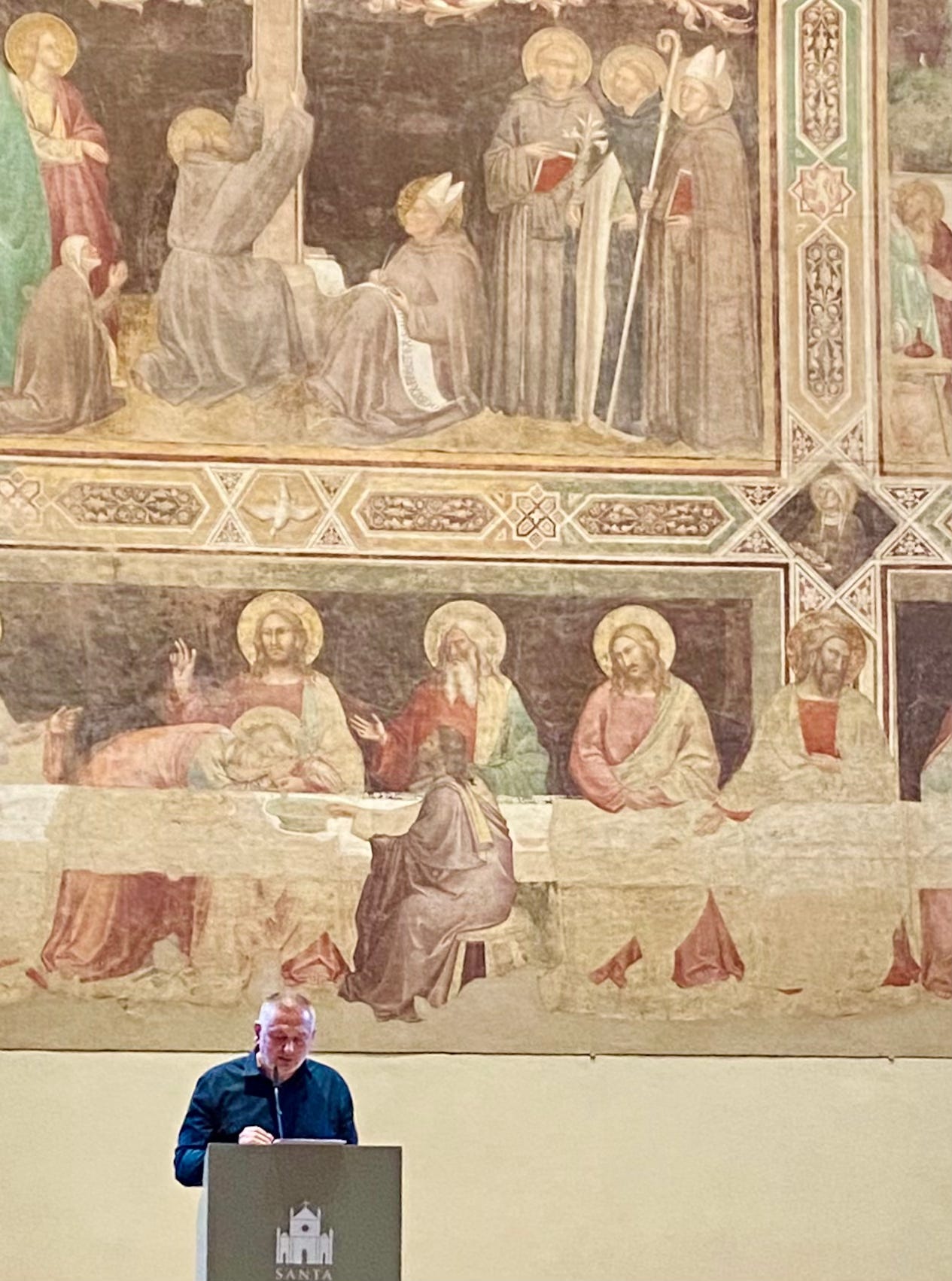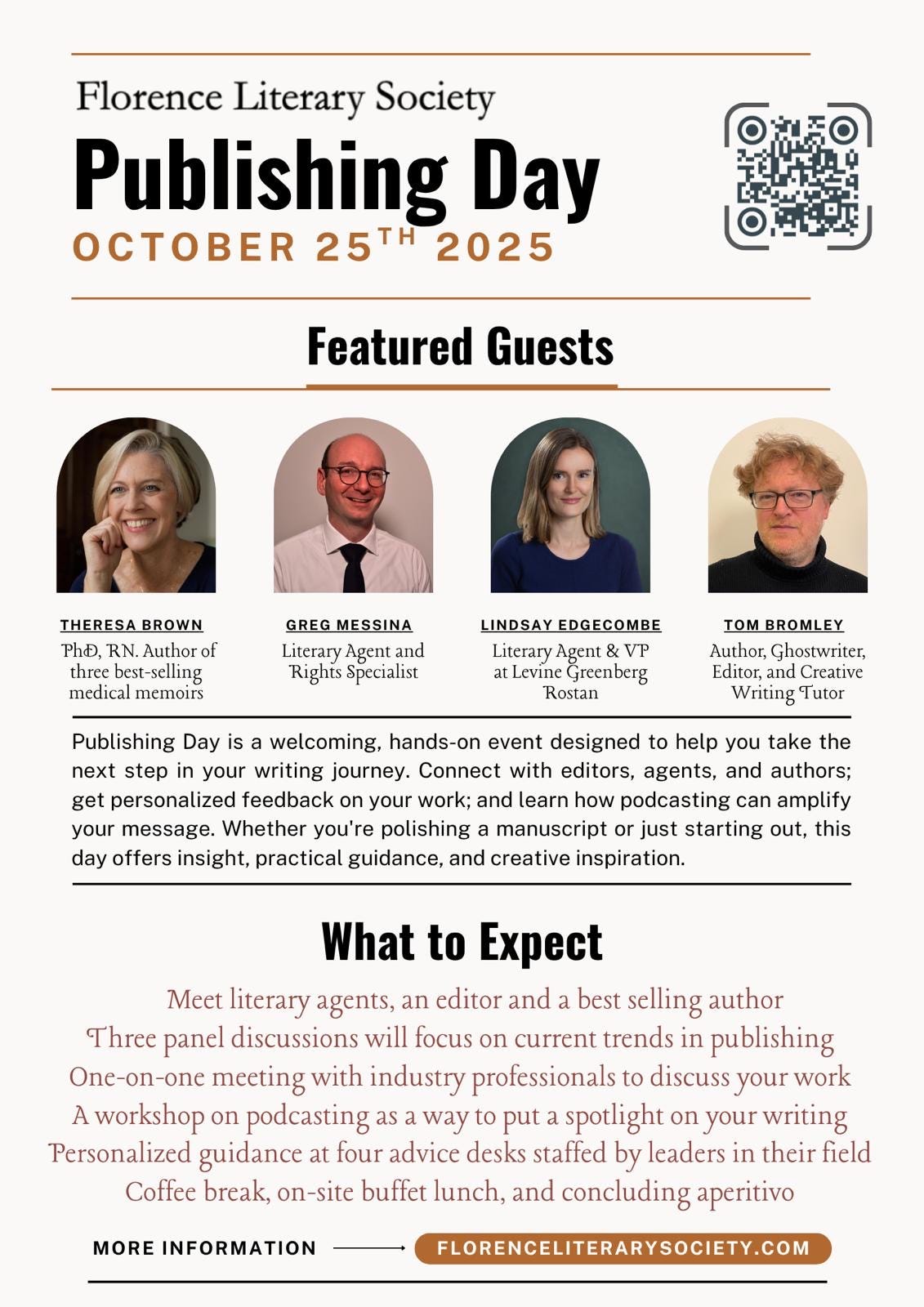Summer Book Club: If you’ve read—or want to read—Swimming to Elba by Silvia Avallone (translated by Anthony Shugaar), please join us tonight, June 16th at 6pm Italy time on Zoom to discuss. Register here for discussion questions and link. Hope to see you there!
It is a tough time to be a thinking and feeling person in this world. I don’t need to provide a litany of what is wrong—one, because you already know, and two, because it would take up this entire newsletter. Suffice it to say that current events—from war and raids to the rise of AI—have gotten me into a massive spin and I had started to feel real despair, the big kind that makes me question what the point of it all is.
But then, as per usual, the universe stepped in in the form of literature.
At twilight last Tuesday, I went to hear Georgi Gospodinov give the Lectio Magistralis for the Gregor Von Rezzori literary prize, which he titled ‘The Continuing Gift of Literature, or The Seven Superpowers of Storytelling’. He spoke beautifully about the power of books and writing, at all times, but especially in dark times. I nodded and cried a lot.

I wish I could transpose the entire lecture for you but instead I offer this short excerpt that conveys the idea of writing and reading books as a kind of salvation, an antidote to despair:
‘Books offer comfort and encouragement. As does writing itself. No matter how despairing we may be— and the occasions for despair have not been this compelling in quite some time—if we write, that means we have hope for tomorrow. For a possible tomorrow—in which the poem will be finished, the novel will be completed, and someone will reach for it, open it, and read it, so as to awaken with their eyes that which has been written. In other words, the world will be present, still in its place.
I write because I believe that the future is possible, and that a person will sit alone in their room in the afternoon and read.
Once, on an Italian afternoon, while wandering the streets of a small town, I saw a woman reading on her balcony. I stood in the shade of a tree and watched her turning the pages, then lifting her head to cast a distracted glance aside before returning to the refuge of the book. And I remember what I told myself then: this world cannot end anytime soon, at least not while this woman is reading on the balcony.
We tell stories or write books to put off the end of the world, as well as our own end. Chalk this up as literature’s next superpower, magic, and gift.’
Books, the writing of them and the reading of them, keep the world on its axis. But it is also about the community of them, how and to whom we connect when we read and write books.
I am doing a close reading of George Eliot’s Middlemarch this summer thanks to the efforts of
, a literature scholar who generously shares her knowledge and passion with the community she has built. It is such a pleasure to carefully read a text knowing that you will be discussing its finer points with a group, but also knowing that what you highlight may be wholly dissimilar to what others will find important or interesting. We all take what we need from books and there is true joy in sharing and learning from those in our reading communities.This is also why I started the Illuminare book club last year and am so happy to be continuing it this year in partnership with Lauren Mouat and the Open Doors Review community. Reading for book club is different than reading for myself in that I am constantly thinking about Lauren and all of the others, wondering what they make of a certain passage or whether they, too, have to put the book down for a minute after reading a particularly moving (or lacerating) scene.
Reading like this is absolutely an antidote to despair and I am grateful to Georgi Gospodinov for putting it into words that spoke straight to me. Even though reading and writing can feel solitary and escapist at times, doing them consciously allows us to be drawn into the world, not away from it.
The lectio magistralis reminded me that reading and writing while the world burns around us can feel radically hopeful, rebellious, freeing, and necessary. It can feel like air.





Thanks for sharing this x